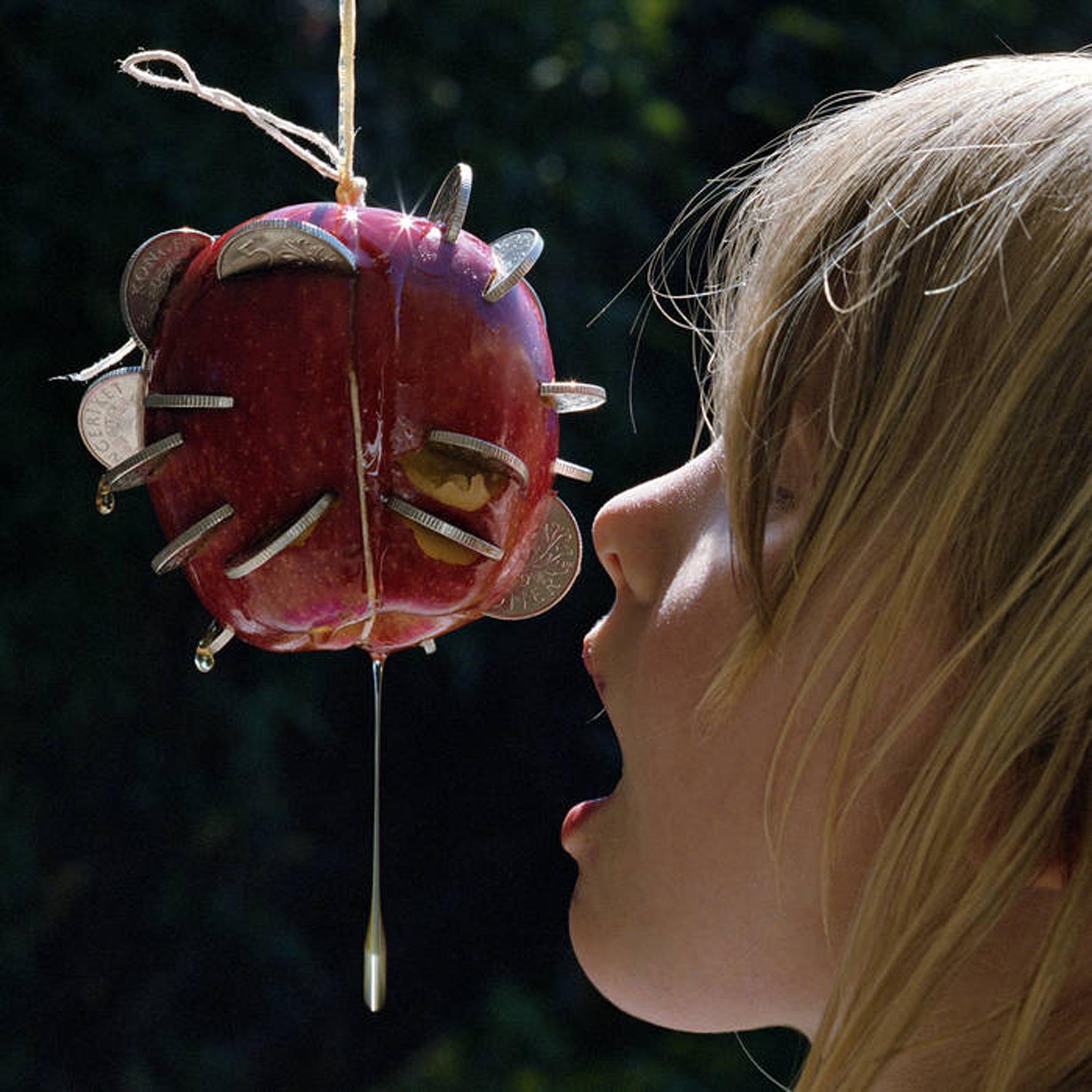 Frederikke Hoffmeier has been a prominent and distinctive voice in the harsh noise scene for the last several years, releasing a steady stream of viscerally throbbing nightmares primarily on Denmark's Posh Isolation label. With this latest release, however, Hoffmeier makes her debut for PAN. More significantly, The Drought also marks a significant leap forward in Hoffmeier's artistry, as a recent residency at MONOM in Berlin completely transformed the way she thought about both space and evoking a strong sense of place. The result of those revelations is something that transcends Puce Mary's noise roots to arrive at a place that is considerably more unique, sensuous, and intimate, though no less disturbing. Hoffmeier is still an absolutely brilliant purveyor of violent, jagged squalls of noise, but she is now quite a bit better at focusing those eruptions for maximum impact.
Frederikke Hoffmeier has been a prominent and distinctive voice in the harsh noise scene for the last several years, releasing a steady stream of viscerally throbbing nightmares primarily on Denmark's Posh Isolation label. With this latest release, however, Hoffmeier makes her debut for PAN. More significantly, The Drought also marks a significant leap forward in Hoffmeier's artistry, as a recent residency at MONOM in Berlin completely transformed the way she thought about both space and evoking a strong sense of place. The result of those revelations is something that transcends Puce Mary's noise roots to arrive at a place that is considerably more unique, sensuous, and intimate, though no less disturbing. Hoffmeier is still an absolutely brilliant purveyor of violent, jagged squalls of noise, but she is now quite a bit better at focusing those eruptions for maximum impact.
The album opens with the queasily squirming and shuddering instrumental "Dissolve," which beautifully sets the tone for everything to come, as it feels like an undulating nightmare of twisting, grinding metal and existential horror.It is an especially effective showcase for one of the most compelling aspects of Hoffmeier's artistry: her passion for collecting unusual field recordings and her talent for manipulating them into something uncomfortably otherworldly and unrecognizable.While she certainly makes use of many of the same textures and tools common in the noise scene, such elements rarely do any of the heavy lifting on The Drought.The only relatively consistent nod to familiarity is Hoffmeier's fondness for sinuously throbbing low-frequency drones, which lends an oozing and gelatinous sense of menace mingled with dark sexuality to many of the album's pieces.If that sounds a bit disturbing and perverse, that is because it is, which fits quite (un)comfortably with one of the primary themes of The Drought: body horror ("I pull a hair out of my mouth, but that is not a hair, and that is not my mouth")."The Transformation" is the definitive statement in that vein, as Hoffmeier's calm monologue about liquefying (among other things) is every bit as haunting and skin-crawlingly weird as Jonathan Glazer's Under The Skin.That piece in particular highlights another wonderfully creepy and unnerving feature of The Drought: all of the vocal pieces feel like a hushed, trance-like confessional in the eye of a snarling and churning maelstrom.
Closely related to Hoffmeier's preternatural calm is her unusually masterful control of mood and dynamics, as these nine pieces feel like they were precision-engineered to slowly unfold as a dark dream of seething dread punctuated by well-timed blasts of laser-focused violence.I never get the feeling that any part of The Drought is dictated by an unpredictable mass of pedals and cables, yet the elemental power of the more intense passages sacrifices nothing in sense of spontaneity.That supremely elegant mastery of tension and release, as well as Hoffmeier's knack for surgical slashes of primal ferocity are what make The Drought such an excellent noise album.However, there are a few other facets to her artistry that deserve attention far beyond the reaches of that insular scene.For all their grinding and gnarled texture, there is a very human and soulful center to some of these pieces, as well as some unexpected glimpses of otherworldly beauty and poetry amidst the ruin.The most striking example of the latter is "Red Desert," a meditative and quietly devastating piece that cribs some of the most beautiful lines from Antonioni's 1964 film of the same name ("I can’t look at the sea for long or I lose interest in what’s happening on land").Most of the other flashes of unexpected beauty are a bit less overt, though they can be similarly striking.For example, the simmering horror of "The Transformation" harbors an absolutely sublime passage of tenderly warbling feedback.The climactic eruption of a chirping feedback loop in "A Feast Before The Drought" is similarly great.Notably, both passages work so well precisely because Hoffmeier's recent epiphanies about space provide her more inspired sounds adequate room to breathe and flourish.
To my ears, it is the vocal-centric pieces "Red Desert" and "The Transformation" that steal the show on The Drought, but both feel like well-placed set pieces in a wall-to-wall masterpiece rather than isolated flashes of inspiration.I was legitimately blindsided by how immersive, listenable, inventive, and thoughtfully constructed this album is as an artistic statement: the cumulative power is quite impressive and not a single passage or theme ever overstays its welcome or gets diluted by unnecessary clutter.Hoffmeier's greatest sorcery here lies in the details, as The Drought is alive with vivid, vibrant and unusual textures and hidden depth.I suspect that is a gift she has always had, but her compositional talents have now reached a level where she is able to bring those elements of her work into sharper focus and it makes quite a profound difference.Hoffmeier not only conjures up a dazzling nightmare of grinding, jagged metal and wriggling, unearthly cosmic horror–she manages to make it a place that I have no desire to leave.This an absolute tour de force and one of my favorite albums of the year.
Read More

